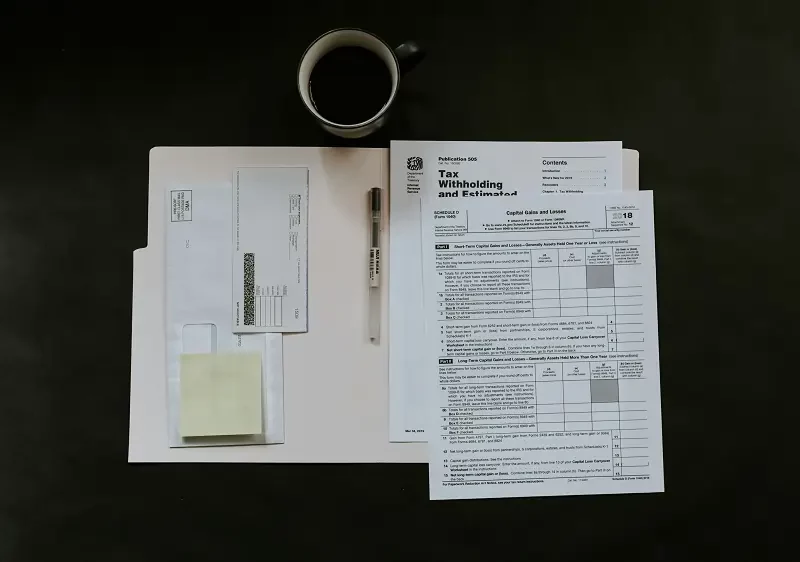
Selling your house for cash can be a great way to avoid the lengthy traditional home sale process. Whether you’re facing foreclosure, need to relocate quickly, or want to skip the hassle of showing your home to potential buyers, cash sales offer a streamlined solution. However, even cash transactions require proper documentation to ensure everything is legal and above board. Understanding what documents you need to sell your house is crucial for a smooth transaction. If you’re considering this option, companies that buy houses in Texas can help simplify the entire process while ensuring all paperwork is handled correctly.
What Is a Cash Sale in Real Estate?
A cash sale in real estate means the buyer purchases your property without obtaining mortgage loan documentation from a bank or lender. Instead, they pay the full purchase price upfront using their funds. This real estate transaction typically closes much faster than traditional sales because there’s no need to wait for loan approval or deal with mortgage-related delays.
Cash sales are particularly appealing to homeowners who need to sell fast or those dealing with properties that might not qualify for traditional financing. The process eliminates many of the uncertainties that come with conventional sales, such as buyer financing falling through at the last minute.
Some homeowners choose an FSBO sale (For Sale By Owner) when selling for cash, allowing them to avoid agent commissions and maintain more control over the process.
Required Documents to Sell a House for Cash in Texas
When preparing to sell a house in Texas for cash, you’ll need to gather several important legal documents. While the paperwork involved might seem overwhelming at first, having everything organized will help ensure a smooth closing process.
1. Proof of Ownership
The most critical document you’ll need is proof that you own the property. This typically includes:
- The original deed or a certified copy, which can be obtained from the county recorder’s office or local recorder’s office, as these offices maintain public records of property ownership
- Property deed showing your name as the current owner
- Any documents from the previous owner if you inherited the property
Your title company will verify ownership through a comprehensive title search, but having these documents ready speeds up the process significantly.
2. Two Forms of Identification
You’ll need to provide valid identification to prove your identity during the closing. Acceptable forms include:
- Driver’s license or state-issued ID
- Passport
- Military ID
Both forms should be current and match the name on the property deed exactly.
3. Purchase and Sale Agreement
This real estate contract outlines all terms of the sale, including:
- Final purchase price
- Closing date
- Property condition agreements
- Any contingencies or special conditions
Real estate agents, including both the seller’s agent and the buyer’s agent, often draft and negotiate the purchase and sale agreement. Real estate attorneys may review or prepare the final purchase and sale agreement to ensure all legal requirements are met. The original sales contract is a key legal document that outlines the terms and conditions of the property transfer.
The sale agreement serves as the foundation for your entire real estate transaction and protects both parties involved.
4. Seller’s Disclosure Notice (Mandatory in TX)
Texas law requires sellers to complete a seller’s disclosure notice for most residential properties. This document covers:
- Known defects or issues with the property
- Past repairs or renovations
- Information about utilities, appliances, and systems
- Any lead-based paint disclosure requirements for homes built before 1978
This is one of the mandatory disclosures to inform buyers about the property’s condition.
5. Property Tax Records
You’ll need current property tax records showing:
- Most recent tax assessment
- Proof of current-year tax payments
- Any information about unpaid property taxes
Property taxes are typically prorated at closing, so having accurate records ensures proper calculations.
6. Title Report or Title Insurance
A preliminary title report from your title company will identify any issues with the property’s ownership history. This document reveals:
- Outstanding liens or judgments
- Easements or restrictions
- Chain of ownership history
Title insurance protects both the buyer and seller from potential ownership disputes.
7. Closing (Settlement) Statement
The closing statement provides a detailed breakdown of all financial aspects of the transaction, including:
- Sale price and closing costs
- Prorated taxes and fees
- Final amounts due to each party
This document ensures transparency in all financial aspects of the home sale.
8. Bill of Sale
While not always required, a bill of sale can help document the transfer ownership of any personal property included with the house, such as appliances or fixtures.
9. HOA Documents (if applicable)
If your property is part of a homeowners association, you’ll need:
- Current HOA documents and bylaws
- Proof of current dues payments
- Any outstanding violations or assessments
These HOA documents help the new owner understand their ongoing obligations.
10. Survey and Utility Statements
A recent property survey helps establish exact property lines and can prevent future boundary disputes. You’ll also want to provide recent utility statements to help with the transition to the new owner.
11. Mortgage Payoff Statement (if applicable)
If you still owe money on your home, you’ll need a current mortgage payoff statement from your mortgage lender showing the exact amount needed to pay off your loan.
Reviewing your loan documents and obtaining a recent mortgage statement from your lender will help you verify the remaining balance and any fees associated with paying off your mortgage.

Optional But Helpful Documents
A home appraisal report can provide an objective assessment of your property’s value and is often used by both buyers and sellers.
While not always required, these additional documents can help facilitate a smoother transaction and potentially increase your home’s value. For example, a comparative market analysis (CMA) uses recent home sales in your area to determine your property’s market value and set a competitive asking price.
Home Inspection Reports
Most buyers choose to have a home inspection performed to identify any potential issues with the property before finalizing the sale.
If you’ve had a recent home inspection report completed, sharing these with buyers can demonstrate transparency and help build trust. A pre-inspection report or pre-listing inspection can identify issues before they become problems during the sale process.
Records of Repairs or Renovations
Documentation of recent improvements, repairs, or maintenance can help justify your asking price and show that the property has been well-maintained. This includes:
- Receipts for major repairs
- Warranty information for new systems
- Permits for renovations from the local municipality
Appliance Manuals & Warranty Information
Providing manuals and warranty information for major appliances and systems helps the buyer understand what they’re receiving and can increase the perceived value of your property.
Who Prepares These Documents?
The responsibility for preparing documents varies depending on the specific paperwork:
- Sellers typically prepare: Property tax records, seller’s disclosure notices, repair records, and utility statements.
- Title companies handle: Title reports, closing statements, and deed transfers.
- Real estate agents are typically responsible for preparing and negotiating: Purchase agreements and other key real estate contract documents.
- Third parties provide: Home inspection reports, surveys, and appraisals when required.
Working with an experienced agent or reputable cash buyer can help ensure all necessary documents are properly prepared and submitted on time.
Texas-Specific Laws and Disclosure Requirements
Texas has specific requirements that differ from other states. Understanding these local laws helps ensure compliance:
Mandatory Disclosure Requirements:
- A seller’s disclosure notice is required for most residential sales
- Lead-based paint disclosure for homes built before 1978
- Flood zone disclosures in certain areas
- Information about any known environmental hazards
Recording Requirements:
- All deeds must be filed with the local recorder’s office
- Certain documents require notarization
- Transfer taxes may apply depending on the location
Timeline Considerations:
- Most cash sales can close within 7-30 days
- Some documents may have specific timing requirements
- Local municipality requirements can affect closing schedules
Final Steps Before Closing
Before your closing date arrives, make sure you’ve completed these important steps:
- Final walkthrough: Allow the buyer to inspect the property one last time
- Document review: Ensure all the paperwork is complete and accurate
- Utility arrangements: Coordinate utility transfers with the new owner
- Moving preparations: Plan your move-out timeline
- Insurance coordination: Cancel your homeowners’ insurance effective after closing
Having all documents ready and organized will help prevent delays and ensure a smooth closing process.
Selling Directly to Cash Home Buyers
When considering your options for selling your property, it’s important to understand the pros and cons of selling to cash buyers versus traditional methods. Cash home buyers offer a fundamentally different approach that can benefit homeowners in specific situations.
Advantages of Working with Cash Buyers:
Cash buyers typically purchase homes in as-is condition, meaning you won’t need to spend money on repairs or renovations before selling. This can save thousands of dollars and weeks of preparation time. Additionally, cash transactions eliminate the risk of buyer financing falling through, which happens in approximately 3-5% of traditional sales.
The documentation process is often streamlined when working with professional cash buyers. They handle most of the paperwork and coordinate with title companies to ensure all legal requirements are met. This reduces the stress and complexity that many homeowners experience during traditional sales.
Understanding the Trade-offs:
While cash sales offer speed and convenience, they may result in a lower sale price compared to market value. However, when you factor in the money saved on repairs, realtor commissions, and carrying costs during a lengthy sale process, the net difference is often smaller than expected.
Why Home Sellers Prefer Cash Home Buyers in Texas:
Why Texas homeowners prefer cash home buyers in Texas is that they understand the local market and legal requirements. They’re familiar with Texas-specific disclosure laws and can navigate the state’s unique real estate regulations efficiently. Cash buyers also offer certainty in uncertain times, whether you’re dealing with job relocation, divorce, inheritance issues, or financial difficulties.
The speed of cash transactions is particularly valuable in Texas’s competitive real estate market. While traditional sales can take 30-60 days or longer, cash sales often close within 7-14 days once all documents are prepared.
How We Buy Houses in TX – The Process:
Professional cash home buyers like Four19 Properties follow a straightforward home-buying process. We typically start with a property evaluation, either through photos or a brief in-person visit. Based on this assessment, we provide a no-obligation cash offer within 24-48 hours. If you accept, they handle the documentation, coordinate with the title company, and can often close within a week.
This streamlined approach eliminates many traditional sale challenges, including multiple showings, open houses, and the uncertainty of waiting for the right buyer.
Need Help Selling for Cash in Texas?
The complex process of selling a home for cash doesn’t have to be overwhelming. Professional cash buyers understand all the document details and can guide you through each step. They typically handle much paperwork and work with reputable title companies to ensure everything is completed correctly.
Unlike working with a real estate agent who focuses on getting the highest selling price through market exposure, cash buyers offer certainty and speed. You won’t need to worry about comparative market analysis, showing your home to multiple buyers, or dealing with a lengthy listing agreement.
When you sell your house fast in Houston or anywhere else in Texas, working with experienced professionals who understand the home sale process can save you time, stress, and potential legal issues. Many homeowners find that the benefits of accepting a cash offer outweigh the potentially higher price they might get through traditional sales methods.

Conclusion
Selling your house for cash in Texas requires proper documentation, but the process is generally more straightforward than traditional sales. By gathering the documents needed early and working with reputable professionals, you can complete your transaction quickly and efficiently.
The key documents include proof of ownership, identification, purchase agreements, seller’s disclosure notices, and various financial records. While the paperwork needed might seem extensive, most of these documents are readily available or easy to obtain.
Remember that cash home buyers in Dallas and throughout Texas like Four19 Properties, are experienced in handling these transactions and can help guide you through the process. We understand the local laws, and disclosure requirements, and can often expedite the closing process significantly compared to traditional sales methods.
Whether you’re dealing with a difficult situation that requires a quick sale or simply prefer the certainty of a cash transaction, having the right documentation ready will help ensure your sale proceeds smoothly from start to finish. The streamlined nature of cash sales, combined with proper preparation, can make selling your home a much less stressful experience than you might expect.
If you’re ready to explore your options for a cash sale, contact us today to learn how we can help simplify the process and handle all the necessary documentation. Our team understands Texas real estate laws and can guide you through every step of your cash home sale.
